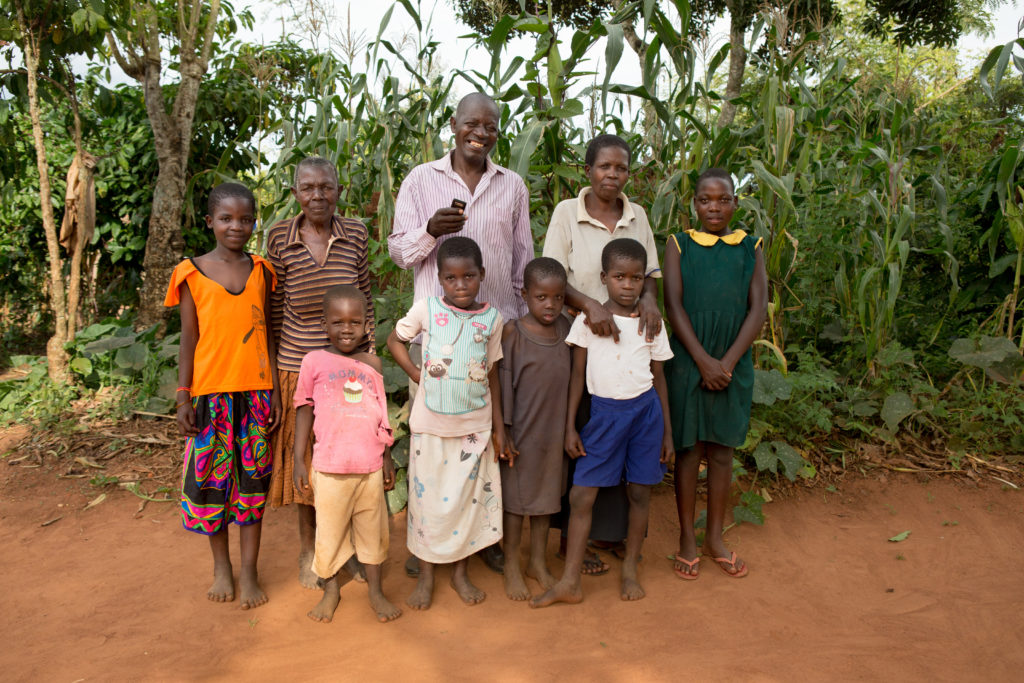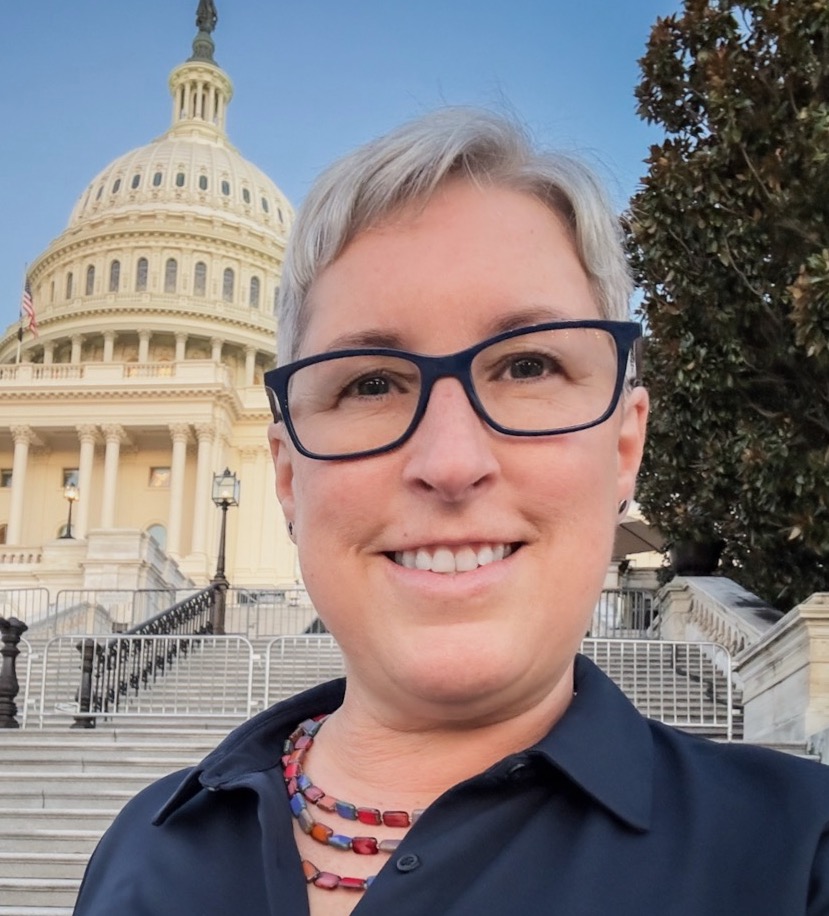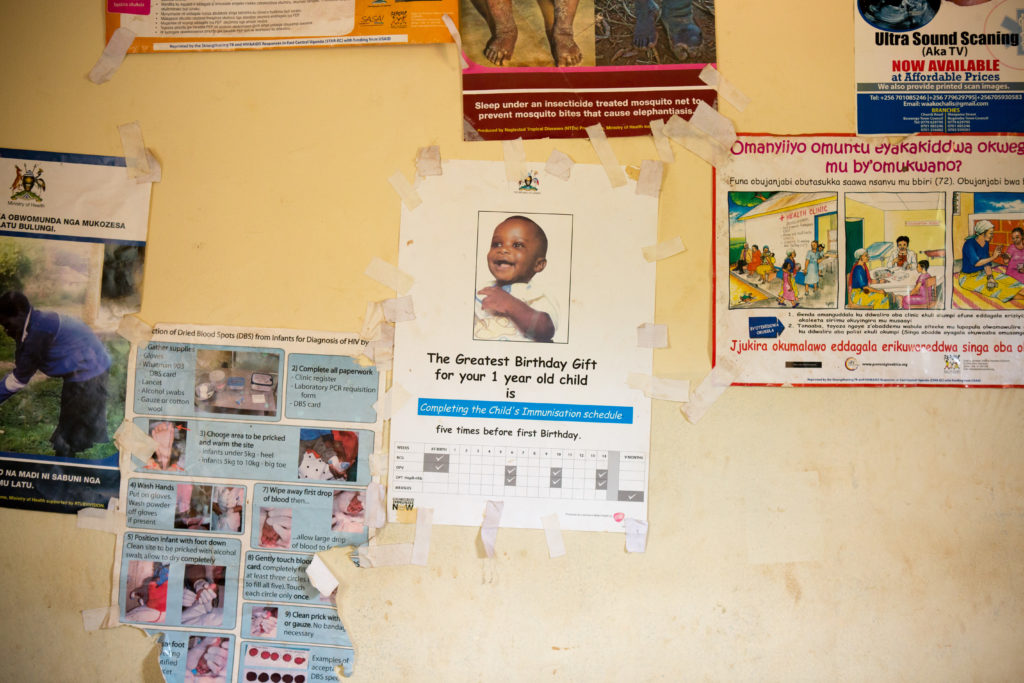
An immunization poster is displayed on the wall at a village health clinic in Kamuli District, Uganda.
Village health workers of eastern Uganda are selfless community leaders. They themselves live in resource-challenged, remote villages, but spend incalculable volunteer hours connecting their neighbors to vital health center services located in nearby and, sometimes, not-so-nearby towns. Supplied by non-profit organizations with mobile phones and bicycles, community health volunteers help the Ugandan Ministry of Health reach people in the hardest-to-access locations.
The role of the community health volunteer is to go house-to-house in their village and visit neighbors to:
- give them the information they need to stay healthy,
- administer very basic health care services including distributing basic medicine and health supplies and giving oral polio vaccines when families cannot get to the clinic for the injected vaccine,
- and connect them to higher level health services when neighbors need it.
For vaccines in particular, community health volunteers keep track of the children in their village and ensure they are all being vaccinated according to health guidelines. As trusted neighbors, they reassure parents that vaccines are safe and will protect their children from the infectious diseases that have maimed and killed village children up until now. They work diligently to dispel misperceptions and false rumors as they arise.
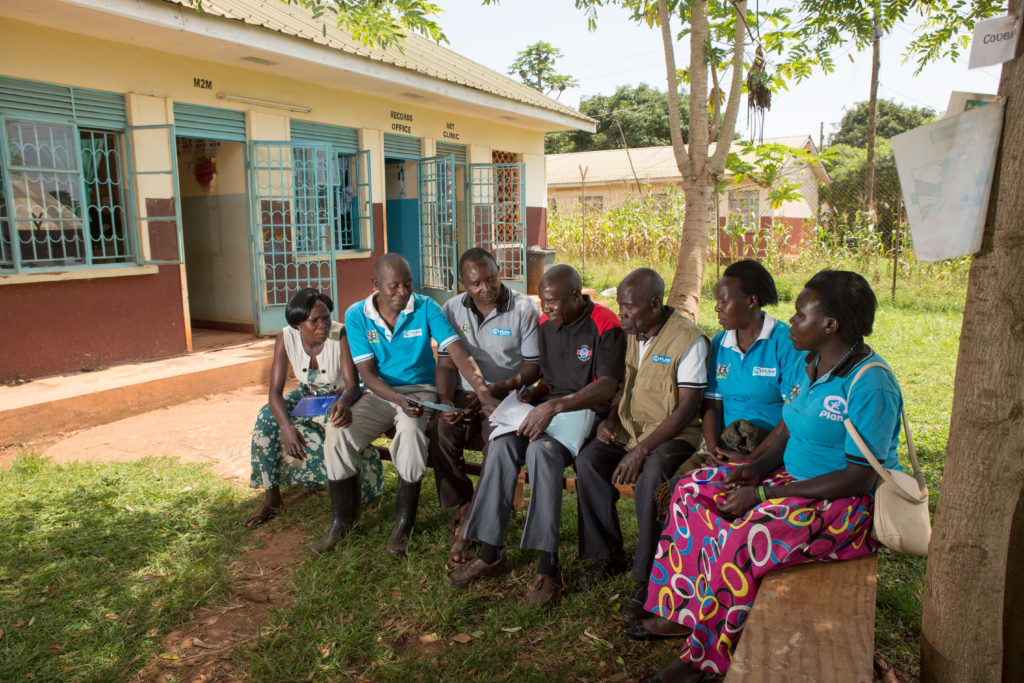
A group of community health volunteers confer at the Nankandulo Health Center in Kamuli District, Uganda.
I had the opportunity to meet a group of community health volunteers who live in and serve the villages surrounding the Nankandulo Health Center, many for more than a decade. Astounded by their tireless dedication, I asked why they volunteer to do this work when they themselves are people with few personal resources. They said:
“I do it out of patriotism. I want the people in my community to be healthy.”
“I saw many children in my community sick and dying from polio and measles. I wanted to do something about it.”
“I’ve seen a big difference over the past 10 or 15 years. We had many children being paralyzed by polio and dying from measles in our villages. When the vaccines started getting to us 15 years ago, many parents didn’t trust the vaccine at first. We had to speak with them many times to get them to understand and trust that vaccines would protect their children. That has been a big part of our job. Now, parents see the difference and are getting their children vaccinated. Our communities are much healthier than before.”
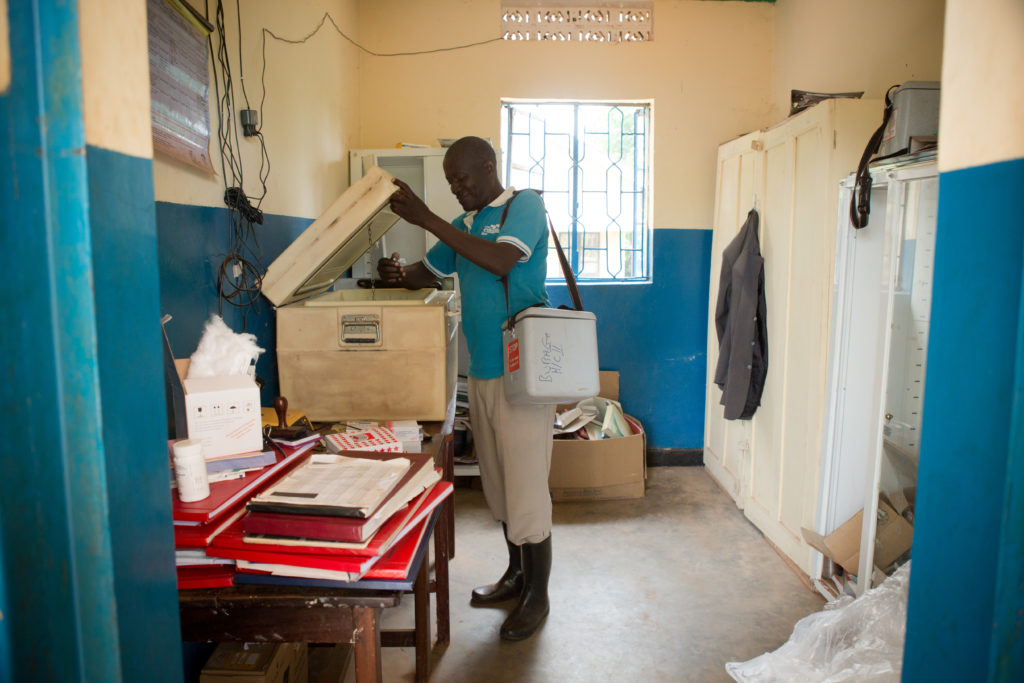
Community health volunteer William Isanga transfers vaccines he carried from the regional health center to a solar-powered refrigerator (with back-up generator) in his village health clinic.
One community health volunteer, William Isanga, was willing to bring us to the health clinic in his village, where vaccines are stored in a solar-powered refrigerator with back-up generator. He also offered to introduce us to families in his village, the neighbors he looks after regularly.
William took us to the home of Elvida Kikye, where we met her daughter, Naume, and six-month-old grandson, Manuel. Elvida gave birth to 11 children but did not have them vaccinated as she was unaware vaccines even existed. Tragically, six of Elvida’s children died from infectious diseases and Naume was struck with polio at the age of two, permanently paralyzing both of her legs. Their neighbor, William, started visiting their home as a community health volunteer 12 years ago and has taught them how to stay healthy and keep the baby healthy. Elvida and Naume are incredibly grateful to now have a way to spare Manuel the suffering they experienced.
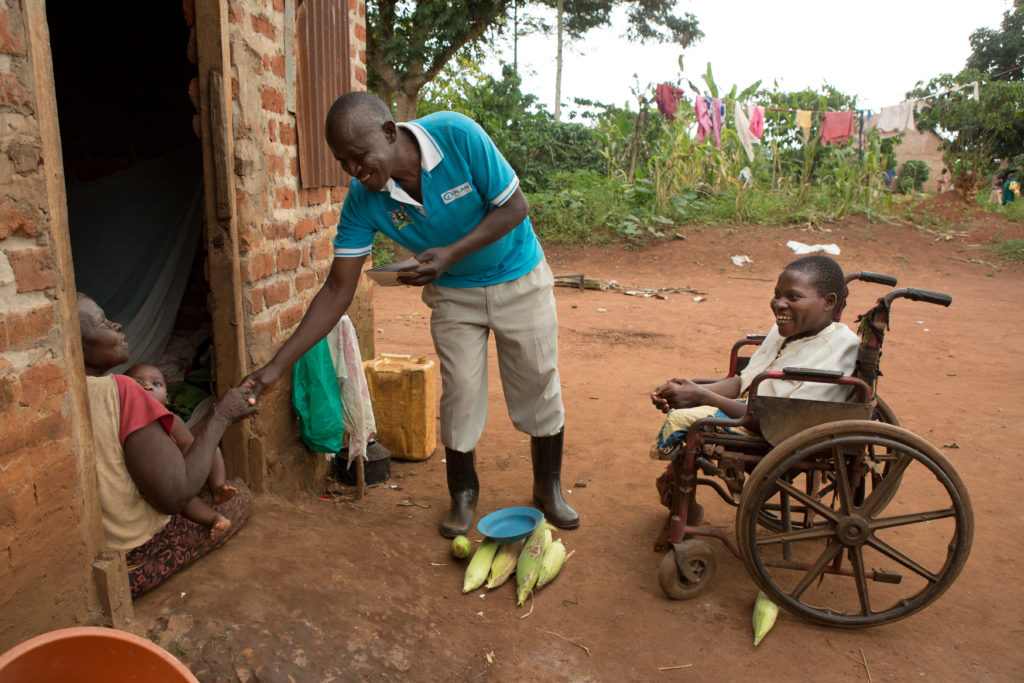
Community health volunteer William Isanga visits village neighbors to make sure baby Manuel is up-to-date on his vaccines.
Because they live in a remote location and Naume’s mobility is very limited, it would be nearly impossible for Elvida and Naume to get Manuel to the health clinic without William’s help. William reminds them when Manuel is due for his vaccines and helps get Elvida and her grandson to the village health clinic for his appointments. All three adults are proud to report that Manuel is completely up-to-date on his vaccines and is a happy and healthy boy! Learn more about Elivda, Naume, and Manuel here.
At the end of a long day, William brought us to his home to meet his very large family. William and his wife Nalongo Mary Mukyala, have had 18 children, including three sets of twins. [Note: Ugandan mothers of twins are given the special title, “Nalongo.”] Sadly, they too have lost five of their children to measles and malaria. Mary and William keep busy with their 13 living children and 20 grandchildren. Somehow, William finds the energy to additionally care for his village neighbors as a health volunteer! Bravo to William and community health volunteers everywhere!

